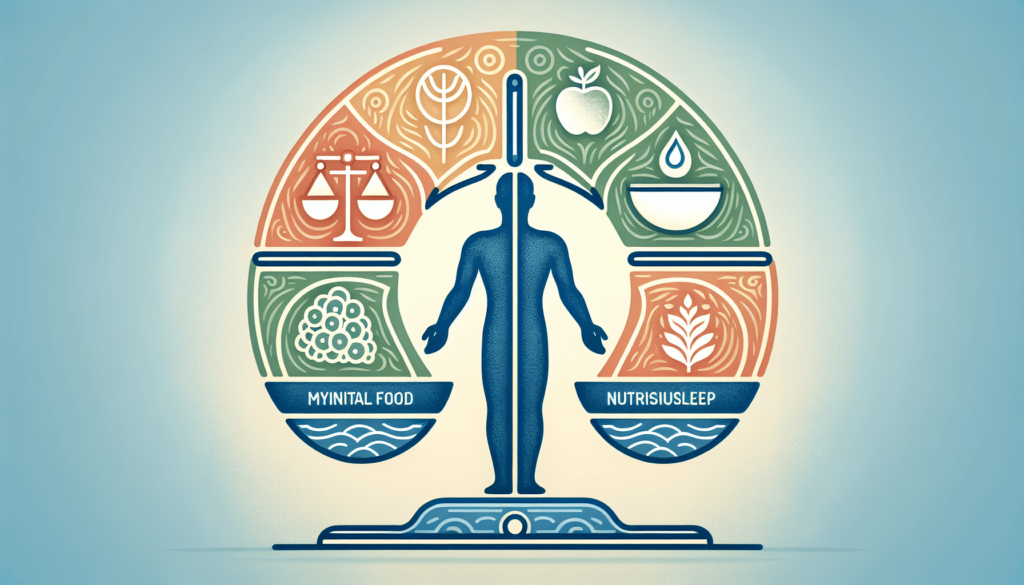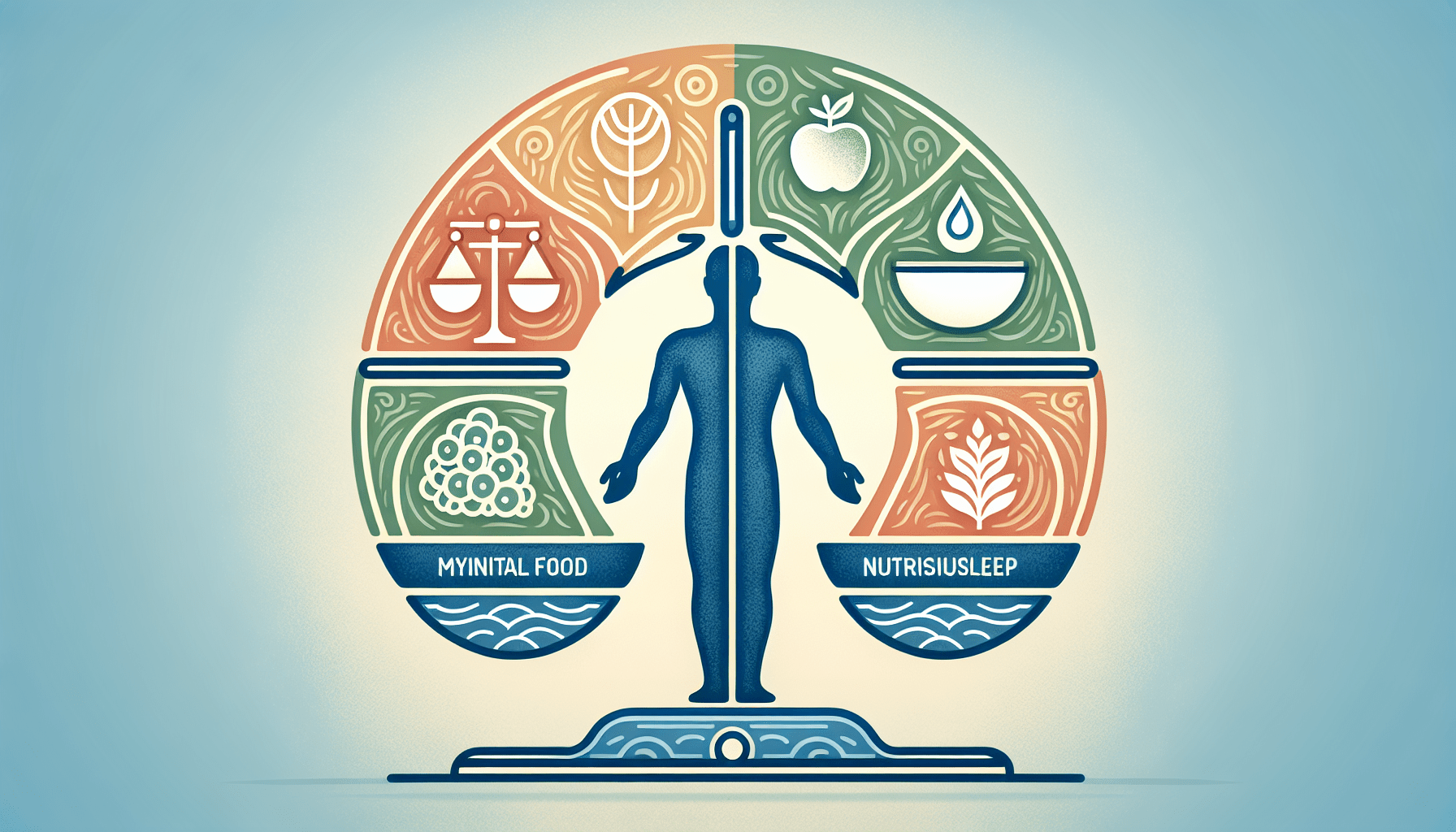In today’s fast-paced world, men often overlook their health in the pursuit of success and productivity. However, it is crucial to prioritize their well-being in order to maintain a balanced and fulfilling life. This article explores the concept of holistic strategies for men’s health, focusing on the importance of addressing physical, mental, and emotional aspects. From regular exercise and healthy eating habits to stress management techniques and self-care practices, these holistic strategies offer valuable insights to help men achieve optimal health and overall wellness.
Physical Fitness
Regular Exercise
Regular exercise is a fundamental aspect of maintaining overall health and well-being. By engaging in regular physical activity, you can improve cardiovascular health, enhance your muscular strength and endurance, manage your weight, and boost your mood. It is recommended that adults engage in at least 150 minutes of moderate-intensity aerobic exercise or 75 minutes of vigorous-intensity aerobic exercise per week. Additionally, incorporating strength training exercises at least two days a week is crucial for building and maintaining muscle mass, improving bone density, and increasing metabolism.
Weight Training
Weight training or resistance training is an essential component of physical fitness, especially for men. By lifting weights or using resistance bands, you can strengthen your muscles, increase bone density, and improve overall physical performance. Weight training is particularly beneficial for promoting testosterone production, which plays a vital role in muscle growth and maintenance. To effectively incorporate weight training into your fitness routine, consult with a fitness professional to ensure proper technique and learn suitable exercises for your specific goals.
Cardiovascular Exercise
Cardiovascular exercise, also known as aerobic exercise, is crucial for maintaining a healthy heart and efficient circulatory system. Engaging in activities such as running, swimming, biking, or brisk walking helps to improve your cardiovascular endurance, increase lung capacity, and lower the risk of various cardiovascular diseases. Aim for at least 150 minutes of moderate-intensity aerobic exercise each week, or if you prefer more vigorous workouts, 75 minutes of vigorous-intensity activity. Remember to start slowly if you’re new to exercise and gradually increase the intensity and duration of your workouts.
Nutrition
Balanced Diet
Eating a balanced diet is essential for optimal health. It provides your body with the necessary nutrients, vitamins, and minerals needed for proper functioning. Focus on consuming a variety of fruits, vegetables, whole grains, lean proteins, and low-fat dairy products to ensure you’re getting all the nutrients your body needs. Limit the intake of processed foods, sugary snacks, and high-fat items. A balanced diet not only helps maintain a healthy weight but also enhances your immune system and reduces the risk of chronic diseases such as heart disease and diabetes.
Adequate Protein Intake
Protein is essential for building and repairing tissues, producing enzymes and hormones, and maintaining a healthy immune system. Men typically require more protein than women due to their higher muscle mass. Including lean sources of protein such as chicken, fish, lean beef, eggs, legumes, and dairy products in your diet is important. Aim for a protein intake of around 0.8 grams per kilogram of body weight per day. However, if you engage in intense physical activity or weight training, you may need more protein to support muscle recovery and growth.
Healthy Fats and Fiber
Contrary to popular belief, not all fats are unhealthy. Incorporating healthy fats into your diet is essential for maintaining overall health. Opt for sources of unsaturated fats such as nuts, seeds, avocados, and olive oil, which can help reduce the risk of heart disease and improve brain function. Additionally, consuming an adequate amount of dietary fiber is crucial for proper digestion, gut health, and reducing the risk of certain diseases like colon cancer. Increase your fiber intake by consuming whole grains, fruits, vegetables, and legumes.

Stress Management
Meditation and Mindfulness
In today’s fast-paced world, stress has become a significant concern for men’s health. Engaging in meditation or mindfulness practices can help reduce stress levels and improve overall well-being. By focusing on the present moment and observing your thoughts without judgment, you can achieve mental clarity and relaxation. Find a quiet space, sit comfortably, and dedicate a few minutes each day to practicing mindfulness or meditation. There are numerous mobile apps and guided meditation resources available to help you get started.
Deep Breathing Exercises
Deep breathing exercises are an effective way to reduce stress and promote relaxation. By taking slow, deep breaths and focusing on your breath, you can activate the body’s relaxation response and calm your mind. Practice deep breathing exercises whenever you feel stressed or overwhelmed. It can be as simple as inhaling deeply through your nose for a count of four, holding your breath for a count of four, and then exhaling slowly through your mouth for a count of four. Repeat this exercise several times until you feel a sense of calm.
Yoga or Tai Chi
Yoga and Tai Chi are mind-body practices that combine physical movements, deep breathing, and meditation. Both forms of exercise can effectively reduce stress, improve flexibility, and enhance balance and coordination. These practices also encourage mindfulness and provide an opportunity to connect with your body and mind. Look for yoga or Tai Chi classes in your local community or consider using online resources for practicing these exercises in the comfort of your own home.
Sleep Hygiene
Establishing a Routine
Establishing a consistent sleep routine is essential for achieving quality sleep and maintaining optimal health. Aim to go to bed and wake up at the same time every day, even on weekends. This helps regulate your body’s internal clock and promotes better sleep quality. Create a pre-sleep routine that includes winding down activities such as reading, taking a warm bath, or practicing relaxation techniques. Avoid stimulating activities, bright screens, and large meals close to bedtime, as they can interfere with your ability to fall asleep and stay asleep.
Creating a Comfortable Environment
Creating a comfortable sleeping environment is crucial for promoting quality sleep. Make sure your bedroom is dark, quiet, and cool. Invest in a comfortable mattress, pillows, and breathable bedding that suit your preferences. Consider using earplugs, an eye mask, or white noise machines to minimize any disruptions that can disturb your sleep. Keep electronics out of the bedroom to avoid the temptation of using them before bed or during the night, as the blue light emitted by screens can interfere with your sleep-wake cycle.
Avoiding Electronics
Electronic devices emit blue light that can interfere with the natural sleep-wake cycle. To improve sleep quality, avoid using electronic devices, such as smartphones, tablets, and laptops, close to bedtime. Try to disconnect from screens at least an hour before you plan to sleep. Instead, engage in relaxing activities such as reading a book, listening to calming music, or practicing relaxation exercises. This break from technology allows your mind and body to unwind, promoting a more restful night’s sleep.

Mental Health
Seeking Professional Help when Needed
Taking care of your mental health is just as important as physical health. If you find yourself struggling with persistent feelings of sadness, anxiety, or other mental health concerns, don’t hesitate to seek professional help. Mental health professionals can provide guidance, support, and appropriate treatment options to help you cope with and overcome any challenges you may be facing. Remember that seeking help is a sign of strength, and there is no shame in reaching out to others for support.
Building Supportive Relationships
Nurturing healthy and supportive relationships is essential for mental well-being. Surround yourself with family, friends, and loved ones who uplift and motivate you. Share your thoughts and feelings with them, and don’t hesitate to ask for help or support when needed. Engaging in meaningful conversations, participating in shared activities, and expressing gratitude for the people in your life can help strengthen bonds and enhance your overall happiness and mental health.
Engaging in Hobbies and Activities
Engaging in hobbies and activities that you enjoy is a great way to improve mental health and overall life satisfaction. Whether it’s playing a musical instrument, painting, playing sports, or cooking, finding activities that bring you joy can provide a sense of purpose and fulfillment. Dedicate time each week to pursue your hobbies and explore new interests. Not only will this positively impact your mental health, but it can also help you develop new skills, meet new people, and broaden your horizons.
Regular Check-ups
Annual Physical Examination
Regular check-ups with your healthcare provider are crucial for monitoring your overall health and detecting any potential issues early on. Schedule an annual physical examination to assess your general health, discuss any concerns, and receive appropriate screenings or vaccinations. During the examination, your healthcare provider will evaluate various aspects of your well-being, including blood pressure, cholesterol levels, and body weight. This allows for early identification and intervention in case of any underlying health problems.
Screenings for Specific Conditions
Depending on your age, family history, and lifestyle factors, your healthcare provider may recommend specific screenings to detect and prevent certain conditions. These screenings can include prostate cancer screenings, blood sugar monitoring for diabetes, blood pressure checks, and cholesterol level assessments. By regularly participating in these screenings, you can stay informed about your health status and take necessary steps to prevent or manage any potential health issues.
Consultations with Specialists
In certain situations, your primary healthcare provider may refer you to a specialist for further evaluation or treatment. Specialists, such as cardiologists, urologists, or mental health professionals, possess advanced knowledge and expertise in specific areas of medicine. Consultations with specialists are essential for addressing specialized health concerns and receiving tailored care. Follow through with any recommended specialist appointments to ensure comprehensive and specialized healthcare.
Preventive Measures
Maintaining a Healthy Weight
Maintaining a healthy weight is essential for reducing the risk of chronic diseases and promoting overall well-being. Excess weight can increase the likelihood of developing conditions such as heart disease, diabetes, and certain types of cancer. Focus on adopting healthy eating habits, engaging in regular physical activity, and maintaining a balanced lifestyle to achieve and maintain a healthy weight. Consult with a healthcare professional or registered dietitian for personalized guidance and support in reaching your weight management goals.
Quitting Smoking
Smoking is a leading cause of preventable diseases and premature death. Quitting smoking is one of the best things you can do for your health. Tobacco smoke contains thousands of harmful chemicals that can damage your lungs, heart, and blood vessels. It increases the risk of various cancers, respiratory diseases, and cardiovascular conditions. If you’re a smoker, seek resources and support to help you quit. Consult with your healthcare provider for personalized cessation strategies, medications, or referral to smoking cessation programs.
Limiting Alcohol Consumption
While moderate alcohol consumption can have potential health benefits, excessive or regular heavy drinking can lead to serious health problems. Limit alcohol intake to moderate levels, which means up to one drink per day for men. Excessive alcohol consumption increases the risk of liver disease, cardiovascular conditions, digestive issues, and mental health disorders. If you need assistance in reducing or managing your alcohol intake, reach out to healthcare professionals or support groups specializing in alcohol addiction and recovery.
Hydration
Drinking Adequate Water
Staying hydrated is crucial for optimal body function and overall health. Adequate water intake helps maintain a healthy body temperature, supports digestion, transports nutrients, and flushes out waste products. Aim to drink at least 8 cups (64 ounces) of water per day, or more if you engage in intense physical activity or live in a hot climate. Remember that individual hydration needs may vary depending on factors such as age, weight, activity level, and weather conditions. Listen to your body’s thirst signals and ensure you’re drinking enough water throughout the day.
Avoiding Excessive Caffeine and Sugary Beverages
While occasional consumption of caffeinated beverages or sugary drinks may not pose significant harm, excessive intake can negatively affect your health. Caffeine, found in coffee, tea, energy drinks, and some soft drinks, can disrupt your sleep patterns and lead to dehydration if consumed in excess. Likewise, sugary beverages like soda, fruit juices, and sports drinks contribute to excess calorie intake and may increase the risk of obesity, diabetes, and dental cavities. Opt for water, herbal tea, or unsweetened beverages as your primary hydration choices.
Monitoring Urine Color
Monitoring the color of your urine can provide valuable insights into your hydration status. Clear or pale yellow urine typically indicates proper hydration levels, while dark yellow or amber-colored urine suggests dehydration. Ensure that your urine is consistently light in color throughout the day by drinking enough water. However, keep in mind that certain medications, supplements, or medical conditions can affect urine color. If you have concerns about your hydration levels or notice persistent changes in urine color, consult with a healthcare professional.
Lifestyle Changes
Reducing Sedentary Time
Prolonged periods of sedentary behavior, such as sitting or lying down for extended periods, can have adverse effects on health. It is essential to break up sedentary time by incorporating regular movement and physical activity throughout the day. Set reminders to take short breaks and engage in light exercises or stretches. Consider using a standing desk or opting for active transportation methods like walking or cycling instead of driving whenever feasible. Every small effort to reduce sedentary behavior contributes to overall health improvement.
Limiting Stressful Situations
While stress is a normal part of life, excessive or chronic stress can negatively impact your health. Identify sources of stress in your life and take proactive steps to manage or avoid them whenever possible. This can involve setting boundaries, practicing effective time management, delegating tasks, and seeking support when needed. Cultivating healthy coping mechanisms, such as engaging in hobbies, practicing relaxation techniques, or seeking professional guidance, can help you navigate and minimize the impact of stressful situations.
Giving Up Unhealthy Habits
Unhealthy habits such as excessive alcohol consumption, smoking, excessive screen time, or poor dietary choices can significantly impact your health and well-being. Identify any unhealthy habits you may have and take steps to replace them with healthier alternatives. This can involve seeking support groups or programs to quit smoking or cut back on alcohol, setting screen time limits, and gradually adopting healthier eating habits. Remember that making positive changes takes time and effort, but the long-term benefits are well worth it.
Community Engagement
Joining Sports or Fitness Groups
Engaging in physical activities within a community setting not only promotes physical fitness but also fosters social connections and a sense of belonging. Joining sports teams, fitness groups, or classes allows you to meet like-minded individuals who share similar interests and goals. These social connections can provide motivation, support, and accountability, making it easier to maintain an active lifestyle. Explore local sports clubs, recreational organizations, or fitness studios to find activities that align with your preferences.
Participating in Volunteer Work
Engaging in volunteer work is a fulfilling way to contribute to your community while benefiting your own mental and emotional well-being. By helping others, you can develop a sense of purpose, enhance self-esteem, and reduce stress. Seek out local volunteer opportunities, whether it’s lending a hand at a local charity, mentoring others, or organizing community events. You can make a positive impact on the lives of others while creating meaningful connections with individuals who share similar values and aspirations.
Attending Men’s Health Events
Men’s health events provide valuable opportunities to learn, connect, and raise awareness about important health issues. These events often feature educational sessions, health screenings, and interactive activities focused on men’s physical and mental well-being. Attend men’s health conferences, workshops, or seminars in your community to stay informed about the latest research, breakthroughs, and strategies for maintaining optimal health. By actively participating in these events, you can gain knowledge, share experiences, and contribute to the overall improvement of men’s health.
Incorporating these holistic strategies into your lifestyle can significantly enhance your overall health and well-being. Remember, small steps can lead to significant improvements, so start by incorporating one or two changes at a time. As you progress, you will reap the benefits of a healthier and happier life. Stay committed, seek support when needed, and prioritize your well-being. You deserve to live your best life, and by taking care of yourself, you can enjoy a lifetime of good health.

